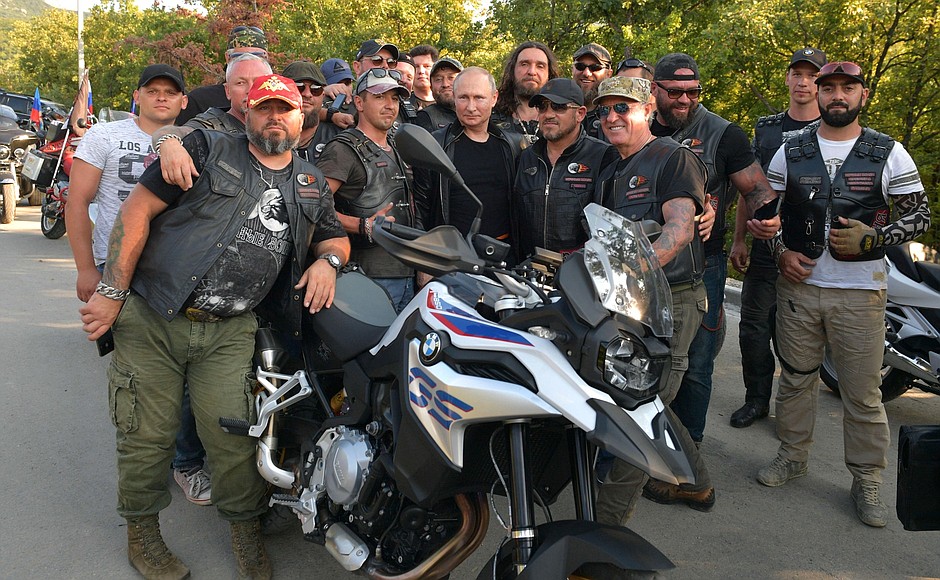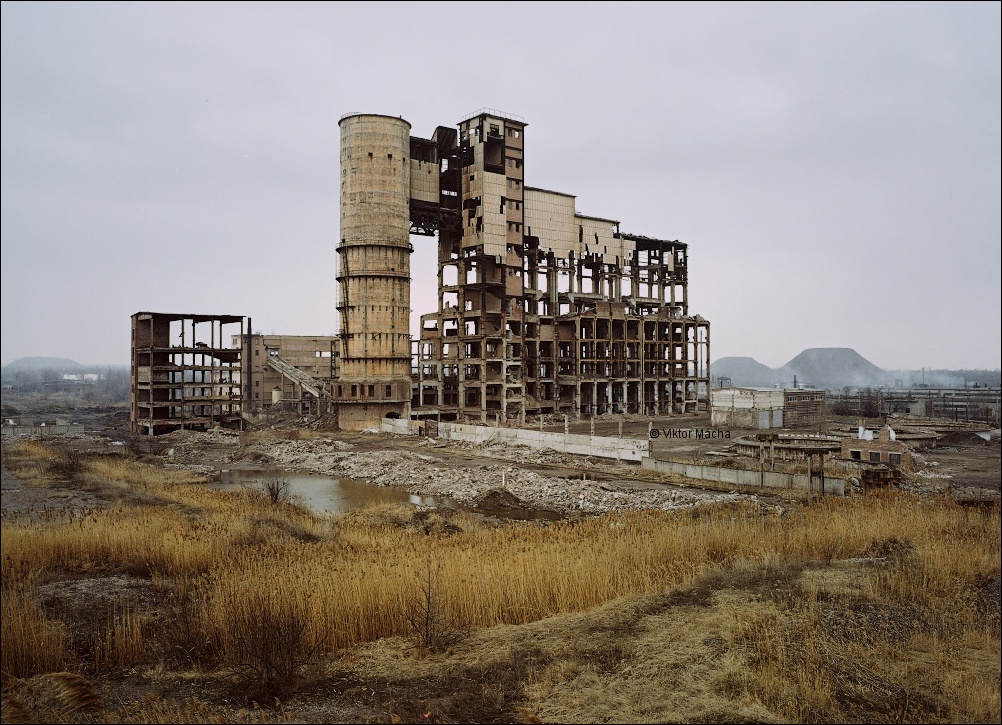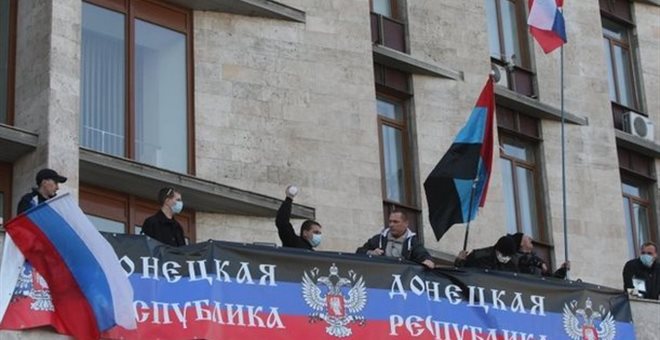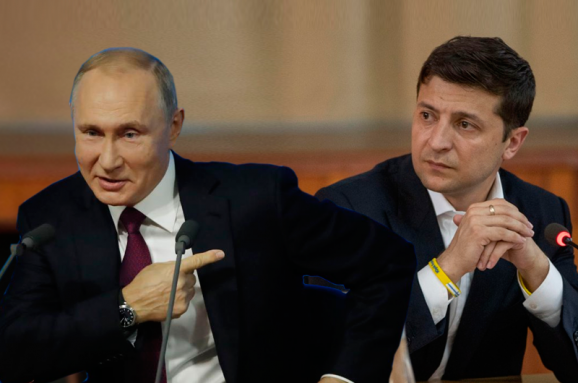A massive prisoner swap in which Ukrainian POWs and civilian hostages held in occupied Donbas were released became one of the major events of 2019 for Ukraine.
76 Ukrainians, some of whom had spent over five years in the basement prisons of the self-proclaimed Donetsk and Luhansk “People’s Republics,” entered free Ukraine. Just after their return, the Ukrainian Ministry of Defence called on journalists, volunteers and other people not to disturb soldiers returned from captivity while they receive primary care and during their rehabilitation. However, some ex-prisoners have already revealed details of the horrors they experienced in prisons under occupation.
On January 8, representatives of the Feofania hospital held a briefing, informing that 59 civilian ex-prisoners were still staying at the hospital. Others had already gone home or had been sent to a sanatorium.
Psychologists and dentists are also working with ex-prisoners. In general, the main problems are related to dentistry. Tetiana Tymoshenko, Advisor of the Minister for Veterans Affairs, Temporarily Occupied Territories and Internally Displaced Persons of Ukraine added that those who had been deprived of their liberty were experiencing cardiac problems, others had maxillofacial injuries caused by torture.
“Five years in five square meters. Imagine living in your toilet for five years”

Some released Ukrainians gave brief comments to Ukrainian media just after the swap.
Oleksandr Danylchenko told journalists that he was detained on 17 February 2017 in occupied Luhansk.
“We united with our friends throughout Ukraine, and started to act not against soldiers, but against their superiors, as they were the heart of it all. Against those people who killed and robbed our hometown Luhansk in 2014. It so happened that we were caught.”
Danylchenko said they were beaten and tortured, but not much, as they did wield much information.
“Then they put us in prison after 15 months of ‘MGB’ [the so-called “Ministry of State Security”] basement.”
Vasyl Savyn made his emotional statement at the swap, addressing it to his captors of five years.
“Five years in five square meters. Imagine living in your toilet for five years. And then - three months in the prison camp №32. When I got to the camp it was like a health center. I rejoiced for three months. Five years in the basement. Do you understand what it means? In the 21st century, in a European state,” he said, adding, unlike the relatively civilized prison camp, prisoners are tortured during interrogations in the terrible conditions of the undercover prison basements of the Donbas “republics.”
“Vladimir Putin attacked my country, trampling my land while pretending not to. Russia’s representatives tortured me. Airborne troops from Russia were guarding me.I'm a Soviet paratrooper myself. I know who is who.”
The man later elaborated in an interview with Hromadske Radio that along with official prisons, the “DNR” also has hidden ones.
“That is like the Middle Ages, where people are tortured and confessions beaten out of them.”
Savin added that the information blockade is another of Russia’s instruments of influence, and called on people not to forget those who are still left in occupied zone prisons.
“Confessing” to Russian media after threats to nearest and dearest

Being a journalist and a blogger Stanislav Aseiev belonged to a category of prisoners relatively known to the public. After his release, Aseiev revealed details about the interview he gave to the Russian propaganda channel “Rossiya 24” in 2018. In particular, he said that he gave it after threats by pro-Russian militants to crack down on Aseiev’s nearest and dearest.
The interview was named “Ukrainian journalist-spy.” In it, the journalist “confessed” to having collaborated with the Ukrainian intelligence service.
Commenting on the period spent in prison, Aseiev asked not to touch on the topic of torture, although he added that “not everybody is ready even to imagine how the militants apply torture.”
After a few days of liberty, Aseiev still could not get used to crowds of people and lights on the streets of Kyiv.
On 9 January, the journalist wrote his first Facebook post after release. In it, he thanked not only journalists, but all the people who supported him during the period in prison. His plan for the future includes fixing his numerous health problems and helping to obtain release for those who remain in prison in the occupied area.
On 10 January, Aseiev gave his first big interview to Donbas Realii and Novoye Vremya (both Radio Free Europe/Radio Liberty services).
In it, the journalist said prisoners’ lives may be saved by how well known their cases are.
"It saved my health and later for me there was a special attitude in Izoliatsia [a secret prison on the territory of a former modern art museum created at a factory of insulation materials] - they were much more loyal to me than to those who did not have such information support."
However, the ex-prisoner added that during the first days of detention there is a small chance of an agreement to release the prisoner being reached. In effect, for the first day, it's better to keep silent.
Nevertheless, Aseiev told journalists that he was tortured for a long time until the executors realized that he has nothing to say.
“I was lying on the planks and praying not to leave that place, but to be shot”

In an interview to Hromadske, 48-year-old Maryna Chuikova told about the torture she experienced in the terrible women’s prison.
The woman was detained on Maiorske checkpoint in spring 2018 when she was returning from occupied Horlivka, where she had taken care of her ill mother, to her sons in Kharkiv. Chuikova was accused of espionage and sentenced to 11 years in prison for alleged collaboration with the Ukrainian Security Service.
In her interview, the woman said that her health problems with her stomach and pancreas, as well as her feet, became much worse.
“In the women's colony we were not allowed to sit, we were 16 hours on our feet. We all had swollen feet and cramps.”
During the detention, a woman came, undressed Chuikova completely and searched her. Her personal belongings were taken away.
“Two big ‘MDB’ employees came and dragged me to the car. During it, they offended me, demonstrating to bystanders that they detained a traitor, a spy. They put handcuffs on me, a hat on my head and took me somewhere.”
The woman says she spent 30 days in the “MDB” (the “security service” of the self-proclaimed “Donetsk People’s Republic”) basement. The room had no windows.
“The cage is closed, there are boards, mattresses are put on them. There were two bottles of blood on the floor. And the boards were smeared with blood. It was visible that a person who had been there before had been tortured for a long time and urinated with blood. And you can see that the bandages were made. He may have been injured. I asked them to take away these bottles, but no one took anything and I slept with them.”
Chuikova described her first interrogation, where a doctor was present.
“She [the doctor] examined me and went away. They gathered at a consilium there and asked ‘What should we do with her?’, the answer was ‘Shoot her.’ And they led me somewhere to be shot. In general, before I entered the remand prison center, I thought that they would shoot me the whole time. We drove for a long time, they drove to a forest. Two guys riding in the backseat with me handcuffed me to themselves and fell asleep. I lifted my hat a bit, and saw that we were driving to the forest through the city of Yenakievo. I thought that was it. But no. They drove me back and forth and went back. Then they brought me food. I told them I don’t need food I was going to be executed. ‘Ah, you won't eat? Now we will punish you’."
The woman told that she was beaten with sticks. She also told about another kind of torture, one involving the toilet.
“There was no toilet in the cell. They let us go there twice a day, in the morning and in the evening. He lights a cigarette and says, ‘Here I smoke, a cigarette burns. If you do not do your job in time, there will be punishment.’ While he is smoking, you should be able to go to the toilet, to wash, and to clean yourself. Of course, you can’t do everything in time. One time, a security guard came and said, ‘You are such a good woman, I like you, I want to help. You can wash here for as long as you wish.’ Well, I relaxed. I took off my boots, washed myself, for the first time I used as much water as I needed. I washed my dress. I wore a coat over my underwear. He took me back, took off handcuffs, and told another two men in the cell ‘Because this woman has been bathing for a long time, you will not go to the toilet.’ They begged and begged him, but he did not allow them to go to the toilet.”
Chuikova said that the prisoners were not allowed to communicate between themselves in the basement, as they were being filmed all day long.
“I was lying on these planks and praying not to leave that place, but to be shot.”
As recounted by Chuikova, it was not the investigator who beat her, but some other men in another room, who slammed her head against the door if she disagreed with them.
“Once I was taken [to the interrogation] when they were beating a man, they took the hat off my head so I could see it.”
After the basement, the woman was taken to the pre-detention center.
“In the cell itself, there were six people. [...] Mostly, they were drug addicts and killers. One in two had HIV and hepatitis, one in five had tuberculosis...And we used common personal care products.”
Chuykova says there was no healthcare and the medicines they were using in the Donetsk remand prison were taken from them.
The woman says she did not experience sexual violence there, but she knows that there were such cases.
“I was sitting with men in the basement, there were men and women upstairs too. I never saw them, but I heard them screaming, but I can't say what they did there. A woman got to our cell, she was tortured. She was electrocuted and raped by men. There were threats to other women, but they were only threats. It did not happen to me.”
Russians came to the “republics” to teach how to torture

Oleh Hlaziuk, a philosophy teacher from Torez, was taken captive on two occasions. Firstly in 2014, he experienced a faked execution by gunfire. On his second arrest on 24 August 2017, he was taken to a prison. He was “convicted” of anonymously writing and supplying materials to Radio Liberty and sentenced to 16 years. His particular crimes were referring to the illegal republics as “territories occupied by Russia” and writing “DNR” in quotation marks.
The ex-prisoner told journalists of RFE/RL that Russians were brought into the self-proclaimed republics to teach how to torture.
“At the Isoliatsiya location, there was a polygraph [this was confirmed by other liberated prisoners - RFE/RL]. A Russian woman specialist was brought in there. People who teach how to torture are Russians. Do you know what a ‘tapik’ is? It’s a field coil induction telephone apparatus. They shoved these electrodes in a person’s tongue, into the genitals, into a bath and ‘twisted’ them with current. First, the ‘tapik,’ then the polygraph, then again the ’tapik’.”
However, after being released, Hlaziuk told journalists that during his second imprisonment he was not tortured because he really had written about the occupied territories, and consequently, there as a reason to lock him up. It were innocent people who were tortured to get them to confess to crimes they had not not committed.
During the press conference devoted to the prisoner swap, Valeriya Lutkivska, Ukraine’s representative in the Trilateral contact group, informed that around 300 Ukrainians remain captive in the occupied territories of Luhansk and Donetsk oblasts. Also, according to Crimean human rights organizations, there are 86 political prisoners in Crimea. In September 2019, Liudmila Denisova, Commissioner for Human Rights, told journalists that there are 110 political prisoners on the territory of Russia and in occupied Crimea.





